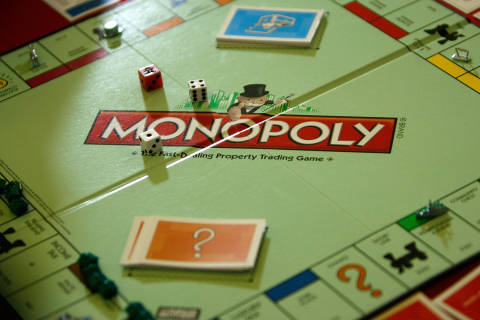Most children receive plenty of toys that are played with for a few days and then forgotten. Some parents and grandparents want to give a gift that will have a more lasting impact. Here are some of the ways to give a financial gift instead of merely stuff.
[See: 10 Classic (and Unique) Retirement Gift Ideas.]
529 plan contributions. Investment earnings in 529 plans are not subject to federal and sometimes state income tax when the withdrawals are used for college costs, including tuition, room and board. However, if you don’t use the money for college, there’s typically a 10 percent tax penalty in addition to regular income tax on the investment earnings. You don’t have to use a 529 plan provided by your state of residence, but sometimes there are perks for investing in your home state. “If you have a tax advantage in your state and the investment options are decent, you definitely want to stick with your state,” says Kimerly Polak Guerrero, a certified financial planner for Polero ICE Advisers in New York.
Roth IRA deposit. Once your child has earned income, you can open a Roth IRA. This after-tax account doesn’t tax investment growth each year, and withdrawals after age 59 1/2 from accounts at least five years old are tax-free. If you take a withdrawal before age 59 1/2, a 10 percent early withdrawal penalty might be due on the portion of the withdrawal that comes from investment earnings, but the amount that was contributed can be withdrawn tax-free. “Anything that they contribute they can take out, but the earnings they can’t take out without penalty until retirement,” Guerrero says. “To put money in and never be taxed again is beyond wonderful.”
Stocks. Purchasing a single share of stock and watching how its value fluctuates over time can help children learn to be investors instead of just savers. David Bianchi, author of “Blue Chip Kids, What Every Child (and Parent) Should Know About Money, Investing and The Stock Market,” opened an E-Trade account for his son and instructed him to use the money to buy four stocks. They talked about the investment selections and watched the stocks increase in value over time. “I don’t like this idea of just giving a check to your 20-year-old child or your 12-year-old child,” Bianchi says. “It’s far more important that they learn how to earn, manage and invest money than it is to give a check.”
[See: 10 Steps to Max Out Your IRA.]
Uniform Transfers to Minors Act account. This type of custodial account is held in the child’s name. Contributions below $14,000 per year ($28,000 for couples) won’t be subject to the federal gift tax. There’s no penalty if the funds in this account aren’t used for college, but the balance could impact the account owner’s eligibility for financial aid. “I love the idea of contributing nominal amounts to a UTMA account,” says Quentara Costa, a certified financial planner for POWWOW in North Andover, Massachusetts. “Children receiving gifts of $20 to $100 for birthdays and holidays can learn about making deposits, withdrawals and the value of a dollar when an item is purchased.”
Personal finance book. Consider selecting a personal finance book to read with your child or grandchild. “So many beloved picture books pack secret money lessons,” says Beth Kobliner, author of “Make Your Kid a Money Genius (Even If You’re Not).” “Take ‘A Bargain for Frances.’ It’s either a story about a hedgehog who buys a tea set from a shady friend or a cautionary tale about falling for marketing tricks.” Older children might be ready for books that discuss more specific financial strategies. “Too often we pass money on to kids who may be younger adults or grandchildren, and it really does not do much good to transfer money to them if they don’t know what to do with it,” Bianchi says. “This stuff is not hard. You just have to carve out the time to study it in a way that is simple and educational and in bite-sized pieces.”
Coin sorter. A piggy bank or coin sorter can give young children a place to store their change and help them create the habit of tucking money away for later. You can get some coin rolls and take the money to the bank to exchange for dollars or deposit the money in a savings account. “I strongly recommend visiting a brick-and-mortar bank, where your kid can meet a banker and see where her money is going,” Kobliner says. “Later, when she has a stronger grasp of abstract financial ideas, you can check out an internet-only bank. Their interest rates tend to be better.”
Savings bond. This classic gift for children is exempt from state income tax and could also be exempt from federal income tax if used to pay for college. While paper savings bonds are no longer sold at financial institutions, savings bonds can be purchased online at TreasuryDirect. You can also download and print a variety of gift certificates to give to your recipient.
[See: 12 Financial Terms Every Retirement Saver Should Know.]
A savings match. A 401(k) match entices many workers to save for retirement. You can offer a savings match to your child or grandchild if he or she contributes a specified amount to a savings account. “Learning about saving and investing early in a monitored environment could potentially lead to much better financial decisions down the road,” Costa says. “Think of them as a gift toward financial literacy.”
Emily Brandon is the author of “Pensionless: The 10-Step Solution for a Stress-Free Retirement.”
More from U.S. News
10 Retirement Savings Goals for 2017
5 Tips for People Who Will Retire in 2017
7 Tips to Live Well on Social Security Alone
8 Financial Gift Ideas for Children originally appeared on usnews.com
















